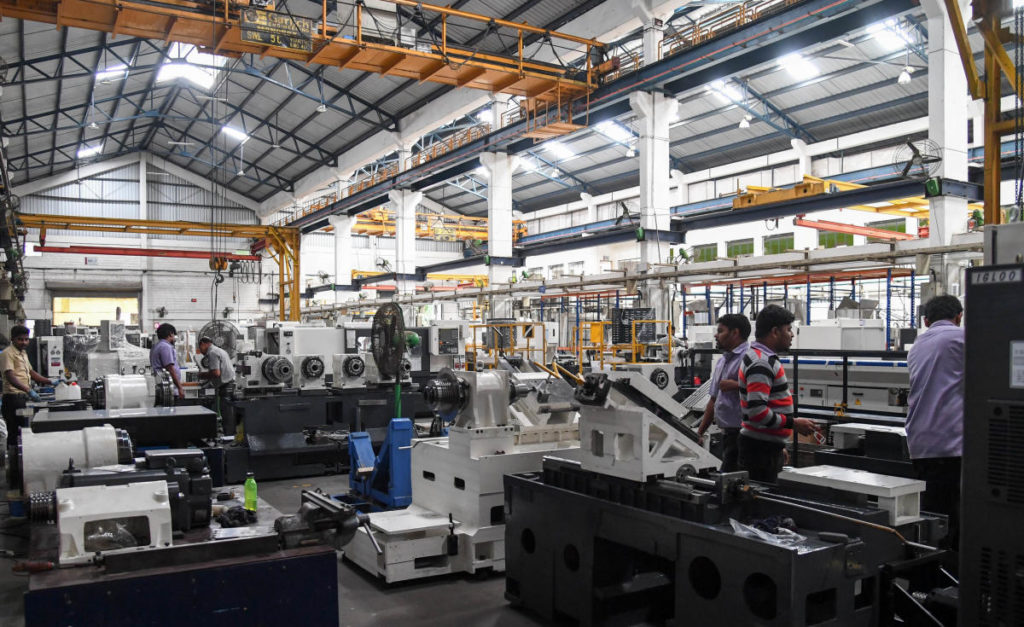![]()
With the government introducing the new wage policy, there has been quite a hustle across industries. The new Code on Wages Bill, which is likely to come into effect from 1st April 2021, stipulates that the allowance part of an employee’s salary should be capped at 50 per cent and that the basic pay should be 50 per cent or more of the gross salary. Traditionally, companies keep the allowance part of the salaries higher to provide more in-hand salaries to their employees.
Leaders from the manufacturing industry say that though this move will impact primarily the industrial relations and social security, and will lead to increase in labour costs for organisations, it has been done to ensure parity for the workforce. Also, they suggest that for the employee, the benefit of PF, in terms of improving the security fund for future, should be a welcome move.
Effect on talent acquisition and management policies of the manufacturing sector
Talent acquisition and management are the two important facets in any sector. Industry experts state that as far as change in the management policy is concerned, the new wage definition could potentially lead to an increase in the liability of payment of contribution towards PF, ESI and various other benefits.
According to Kavita Nigam, Chief Human Resource Officer, Karam Industries, “Employees are looking for stability and security. So, with the new wage definition coming in and the compliances that have been made mandatory, it will definitely attract new talent to join the companies which are compliant.”
Jay K Mulchandani, Founder and MD, Core B Group, added, “It would be a challenge to educate and inform our team but we strongly believe that it will not majorly affect the way we acquire talent because being a startup we have always set out to onboard people based on a set parameters like skill, work ethics and the sheer will to adapt to the changing environment.”
Gautam Kumar, CHRO and Director – HR, SKF India, said, “The wage policies would be more streamlined and would concentrate more around enhancing social security benefits for all employees. Covering a larger set of employees under the purview of labour laws and social security benefits to the unorganised sector is one of the key objectives of the code on wages.”
Restructuring workforce policies
Jay K Mulchandani from Core B Group said as part of a long-term plan, they are working towards setting up an immersive environment by the name of ‘Core B Gram’. “The idea is to build a township where employees of all levels will be given accommodation and access to basic facilities for the upkeep and wellbeing of the team,” he said.
Kavita Nigam from Karam Industries asserted that health check-ups are something that seem logical and it will not take them very long to implement this.
She further said that Karam Industries’ wage component is currently more than 50 per cent of the net take home salary.
Impact on workforce strategies
About the impact on the company’s workforce strategies, Gautam Kumar from SKF India highlighted that their efforts would be directed to strategies that do not hamper the ongoing workflow or hiring in the company.
“We have never structured our compensation strategy with the intent of reducing social security, so nothing much changes for us. Impact would be quite remarkable for organisations that have a large gap, in terms of industrial relations and cost,” he said.
Impact on employers and employees
Speaking on the impact that the new wage policy may have on employers and employees, Kumar from SKF India pointed out that the larger impact will be on the gratuity payouts since with the increase in Basic, the payout on gratuity will also be on a higher side.
He said, “Organisations, which are paying gratuity over and above the Gross pay, will be the most hit by this since at the senior levels, the gratuity is a significant portion when they retire or move out.”
Further, “Employers, who have made gratuity as a part of CTC, will also be impacted since the contribution in the past would have been on a lower side, whereas the payout will be higher, and this delta cost has to be sponsored by employers,” Kumar added.
Kavita Nigam from Karam Industries said, “On the employee front, there could be an impact because the next take home salary may come down because it is on the basic salary that the employee PF is deducted.”
Moreover, if the basic component goes up, the net home pay may decrease which is considered as a forced saving for the employee, she mentioned.
Mulchandani from Core B Group concluded by saying, “The bottom line is that our company has started from scratch and as long as the changes secure the quantum of social security contributions and benefits to an employee in a uniform manner, we do not mind giving up a higher margin of the profits from the business ecosystem.”
We are providing practical training (Labor Laws, Payroll, Salary Structure, PF-ESI Challan) and Labor Law, Payroll Consultant Service & more:
- HR-Generalist-Practical-Training: https://oneclik.in/hr-generalist-practical-training/ (PF, ESI, Bonus, Payroll & more)
- Labour Code | Labour Bill (Labour-Law-Practical-Training): https://oneclik.in/labour-law-practical-training/ (Factory, Contact Labor, Maternity Act & more)
- PF – ESI Consultant Service: https://oneclik.in/pf-esi-consultant-service/
- Labor Law, Compliance & HR – Payroll Management
- Advance Excel Practical Training
Get Latest HR, IR, Labor Law Updates, Case Studies & Regular Updates: (Join us on Social Media)
- Telegram Channel: “One Clik”
- Whatsapp Group: https://wa.me/919033016939
- Facebook: One Clik
- Linkedin: One Clik
- Instagram: oneclik_hr_management
- YouTube: One Clik

